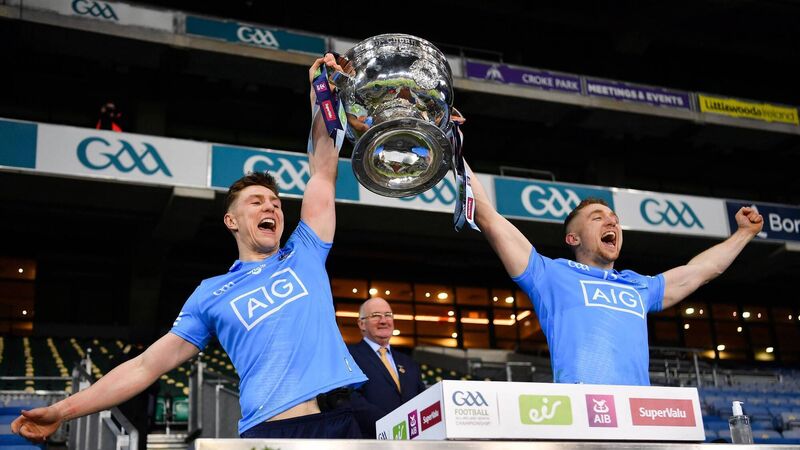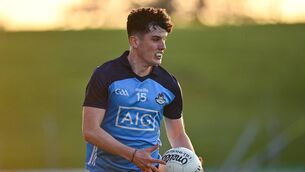Does the GAA really need a successful Dublin football team?

John Small and brother Paddy Small of Dublin lift the Sam Maguire after the All-Ireland win over Mayo at Croke Park in 2020. The Dubs lost their crown this year but remain a powerful force. Picture: Ray McManus/Sportsfile
Forget the big sporting question going into last weekend’s All-Ireland football final and whether Mayo could finally rid itself of the serial runners-up tag.
As they once again performed to type, the interesting commercial question for the sponsors, brand owners, and partners was: ‘What would an All-Ireland without a dominant Dublin look like commercially?’











